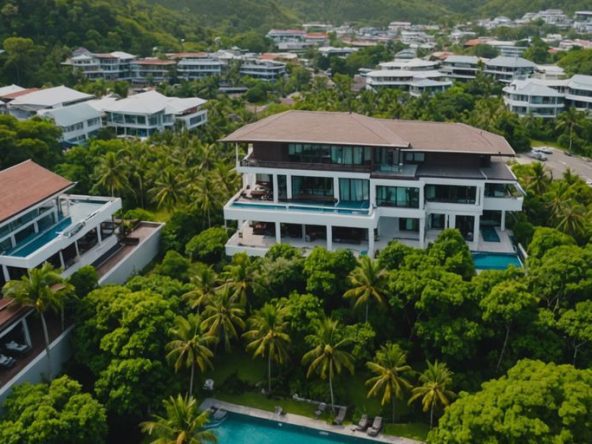Thailand is considering easing property ownership regulations to attract foreign buyers and address a glut in the condominium market. The proposed changes include increasing the foreign ownership cap in condominiums from 49% to 75% and extending leasehold periods from 50 to 99 years.
Key Takeaways
- Thailand plans to increase foreign ownership in condominiums from 49% to 75%.
- Leasehold periods for foreigners may be extended from 50 to 99 years.
- The move aims to address an oversupply in the condominium market and stimulate the economy.
- The proposal has faced opposition from the Thai Hotels Association and concerns over potential conflicts of interest.
Government’s Proposal
The Thai government is considering significant changes to property ownership laws to attract foreign investment. Prime Minister Srettha Thavisin has tasked the Interior Ministry with amending regulations to allow foreigners to own up to 75% of a condominium project, up from the current 49%. Additionally, the maximum leasehold period for foreigners may be extended from 50 years to 99 years.
Deputy Prime Minister Phumtham Wechayachai disclosed that the proposal aims to stimulate the economy and attract foreign investment. The Real Estate Information Center (REIC) reported a 19.7% decline in land allocation permits in the first quarter of the year, highlighting the need for measures to boost the property market.
Industry Response
The proposal has received mixed reactions from various stakeholders. Executives in the local property industry have advocated for the increase in foreign ownership caps due to growing interest from foreign buyers. The REIC noted that foreign ownership quotas for condos in popular destinations like Phuket and Pattaya are fully occupied in several projects.
However, the Thai Hotels Association (THA) has expressed strong opposition to the plan. The association warned that allowing foreigners to own up to 75% of condominium units could lead to intense price competition and market disruption. They argued that the policy could negatively impact the hotel business by facilitating the renting out of condo units on a daily basis, directly competing with hotels.
Potential Conflicts of Interest
The proposal has also raised concerns about potential conflicts of interest. Caretaker Senator Somchai Swangkarn warned that the policy could benefit property businesses connected to cabinet ministers, including Prime Minister Srettha Thavisin. Somchai claimed that the listed property developer Sansiri, a major player in the business, was owned by Srettha’s family.
Interior Minister Anutin Charnvirakul stated that the government needed to stimulate the economy and that the proposed changes would not favor capitalists. He assured that the rights of Thai people would be protected along with economic stimulation.
Conclusion
Thailand’s proposal to ease property ownership regulations for foreigners aims to address an oversupply in the condominium market and stimulate the economy. While the move has garnered support from the property industry, it has faced opposition from the hotel sector and raised concerns about potential conflicts of interest. The government will need to carefully consider these factors as it moves forward with the proposal.
Sources
Thailand to court foreign buyers amid condominium supply glut –
Nikkei Asia
, Nikkei Asia.- Government may raise foreign condo ownership limit to 75% | Thaiger, Thaiger.
- Thailand’s New Policy?: 75% Foreign Condo Ownership, 99-Year Leases, Khaosod English.
- Thai hotels oppose plan for 75% foreign condo ownership | Thaiger, Thaiger.
- Bangkok Post – Foreign condo ownership policy "conflict of interest", Bangkok Post.




